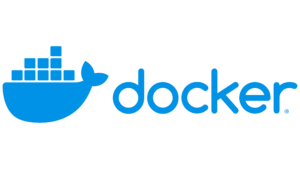Episode 83: The Wonderful World of Linux
News & Personal Updates
- The Linux Foundation suffers a major hack and is still down as of recording time
http://www.zdnet.com/blog/open-source/some-linux-foundation-crack-attack-details-emerge/9535
- Fedora is looking for a codename for Fedora 17: Hugo or Shakespeare
http://www.phoronix.com/scan.php?page=news_item&px=OTkwNA
- Proposed Kernel 3.1 logo change
https://lkml.org/lkml/2011/9/10/24
http://www.linuxtoday.com/news_story.php3?ltsn=2011-09-13-009-41-SY-SM-HU
Non-News…!
- IBM sells Google 1,023 patents for Android legal defense
http://www.zdnet.com/blog/google/ibm-sells-google-1023-patents-for-android-legal-defense/3317
- What’s coming in Ubuntu’s new Unity Linux desktop
http://www.zdnet.com/blog/open-source/whats-coming-in-ubuntus-new-unity-linux-desktop/9519
- Official NASA Futuristic Space MMO May Come to Linux
http://www.ubuntuvibes.com/2011/09/official-nasa-futuristic-space-mmo-may.html
Main Topic
- The Wonderful World of Linux
Websites of the Week
- We’ve done this before, but with this episode we really need to offer up distrowatch.com as a website.
Announcements
More info
Hosts: Rob, Scott, James, Harrison
Subscribe to the podcast: [iTunes] [Zune] [RSS MP3] [RSS OGG]
Contact Us:
Forum: mintCast
Email: [email protected]
Phone: 1-832-514-2278
Twitter: @mintCast @Linux_Mint @3dbeef @jamescoyner
IRC: irc.spotchat.org – #mintcast
More Linux Mint info:Linux Mint website,blog,forums,community
Podcast Entry and exit music provided by Mark Blasco. http://www.podcastthemes.com/ The podcast’s bumpers were provided by Oscar.

Your browser does not support the audio element.
Podcast: Play in new window | Download
Subscribe: RSS




Great show. I enjoyed your insights on the other distros. I use lm from time to time. currently I’ve been hooked on ArchLinux ever since I figured out how to install it that is.
Another excellent show, guys. The news about Unity bothers me. Has Ubuntu gone tablet happy? It makes me even more glad I moved to both Mint and KDE.
I honestly don’t think too many enterprises will move wholesale to Linux. As a Penguinista I’d love to see it happen but too many companies rely on Microsoft apps and databases to see them not upgrade to a newer form of Windows, regardless of how much money they could save. Besides, too many corporate IT folks don’t have a positive opinion of Linux and if the IT folks don’t support the move it’ll be hard for CEO’s and CFO’s to approve it.
I enjoyed hearing the looks at the different distros. I had heard of all of them, and even looked at a few when I was doing research on ditching Ubuntu, but it was good to hear well thought out reviews on them from a general users’ point of view. Once again we could really use the info available on a webpage for easy access. I’ll have to see about transcribing it before I remove the ‘Cast from my DMP, but now that I think of it this isn’t the first time I made that offer. I’ll have to check my old comments to find out which one it was for so I can follow through. The good news is that last night while listening to the ‘Cast I was able to write notes to myself on my phone and email them to myself to post them here.
@Scott:
Thanks for calling James on his Apple history. Sorry, James, but I’m glad someone corrected your history. I remember the original 1984 Macintosh ad, plus I knew folks back in New Orleans who loved the Apple II, so there’s no way nobody knew about Apple back then. We may have hoped it would fail, but we definitely knew about it. 😉
Hey Boston.i`m curious,what is your opinion on the BSD`s, as they are all KDE based?
You can run gnome on BSD
Haven’t really looked at BSD too much. I definitely need KDE now that I discovered KDE4 is so much better than the KDE3 I looked at years ago. I don’t think I can even look at GNOME anymore, and that’s before GNOME 3 started coming out.
Hey, guys. Hate to bring up the best desktop argument again, you know Unity and Gnome 3 and all that…
But I think a point that no one has brought up is that I use my work pc differently then my home pc. One is for work and I want it to be minimal so I can focus (think sports car)… and one if for fun and I want to have access to all my programs quickly (think mini-van).
At work I might use 3-4 programs all day, but when I get home I will have about 5-6 programs running at all times. I don’t want to hunt for all of them and I want to be able to try out new programs and a traditional menu system like gnome 2 lets me see all my programs at once. Which is helpful if I don’t remember the last media player I installed.
I’d like to hear about your computer habits at home and at work and if they are different. If they are, then maybe different desktop setups would be better for different uses. Then we can talk about desktops in a more complex, this one is good for work and focus and this one is designed for play, terms…
For now I’ll stick to XFCE. Full menus and drop down launchers for my most important 5 programs.
Best of both worlds…
Gents,
Enjoyed the discussion, thanks. I was very interested in the ‘enterprise’ discussion, especially Scott’s comments about casual users and ‘gimick’ OSes. In that realm I see Linux as the OS to connect all of the devices most people use – phones, tablets and PC’s and NOT trying to move into the enterprise area alone.
I am not a IT guy or a programmer so my question is – What is the real challenge to this interconnectivity?
I have a Palm WebOs phone which works very well for my purposes and is highly configurable with great community support and upgrades. I understand Scott has the WebOs tablet which was intended to be wirelessly interactive with the WebOs phones. WebOs is base on Linux as is Android (in some way as I understand it).
I want to have a direct, fluid connection between all of these devices since they each have a useful and sometimes specific purpose.
Motorla’s Atrix follows somewhat along this line but attempting to use a single device. What prevents having a phone, tablet and pc from having a networkable / file sharing capability yet be usable as an independant device with Linux being so configurable?
Keep the conversations coming.
For the end-user interconnectivity is easy; it’s Google Docs and having your stuff in “the cloud.”
For the poor IT guys, it’s hardening the network so that the new HP Officejet with a built-in wifi chipset doesn’t allow the script-kiddies access to your data stored on the company server.
I like the show – it is nice to hear about my favorite distro and bits about the Linux world. It is an easy way to learn about stuff.
It would be nice if you guys kept on topic. I don’t think the podcast is a good place to socialize.
In addition, it would be great if you guys would keep the egos off the air. It detracts from the goal of the podcast (and the goal is not to make you look cool).
merelyjim: I understand your reply and I get that Google docs will address some of my inquiry and I am aware of security issues. The cloud has its draw backs, say when a hurricane disrupts electricity for a week or more.
My desire is to have devices that effectively work as a single device when needed. Linux, as a flexible operating system, seems (at least to a neophyte) to be able to make that happen from a software stand point.
If each device has effectively the same kernel on it, what is the major challenge for creating a nearly seamless connection and interoperability? (this is not a rhetorical question)
“If each device has effectively the same kernel on it, what is the major challenge for creating a nearly seamless connection and interoperability?”
Um… as my boss would say (being a jerk and trying really hard not to sound like a jerk – ha!) “the business model is to get them here, and keep them here!”
If you could get the same experience on a WebOS phone as Android, there’s no ‘lock-in’ for HP to continue to make WebOS devices. At least, that’s what the last CEO thought…
Yorkshire,UK.
Great show! I really enjoyed listening to the distro review. I watch reviews of distros on YouTube. However,the way in which you covered this topic surpassed the videos because of your analysis from the prospective of a Mint user.
Atm I’m with Ubuntu Classic but if Ubuntu move totally towards Unity next April I’ll definitely be jumping ship.
LMDE is good insurance for Mint, with all the changes, & prospective changes, with Ubuntu (Unity,Wayland etc.) but is there support for multi core processors?
Support for multi-core CPU’s is more a kernel thing than a distro-thing, but yes, if you download the 64-bit version, it’s baked-in.
The Debian version of Mint is nice, but if you’ve come right off of Ubuntu, try the regular Mint_11. This will allow you to install from PPA’s as well as DEB packages, and let’s you sort of grow into a sometimes less user-friendly environment (i.e.- like compiling from source less-than-user-friendly).
The beauty of it is this; download, burn to DVD (or flash-drive), reboot, and take it for a test-drive! No commitment until you hit the “install” icon.
As a supplement to your distro roundup, I wanted to let you know about Crunchbang (aka #!) Linux:
http://crunchbanglinux.org/
Its based on Debian Squeeze, uses the OpenBox window manager by default (though XFCE is also an option) and is very well suited for running on older/slower hardware or netbooks. The focus for use seems to be on developers, but though it doesn’t have quite the fit and finish of Mint it is very easily configurable and usable as a good basic desktop (and I have found it also useful as a rescue distro when you load it onto a USB stick) regardless of the age of your hardware.
They get around the whole CD-sized vs DVD-sized ISO by having a 700meg ISO that does the initial OS load and then downloads other packages (printer support, Java, OpenOffice, etc) via a script that runs the first time you log in
It is available via BitTorrent (see the links on the webpage), and has a fairly active community to judge by the traffic on their forums. If anyone wants to try it, the best way you can support them is to seed it out over your Torrent client. It does assume a slightly higher level of ‘under the hood’ comfort than Mint, but it is still well usable for the casual users.
Now that someone else has brought it up, I’ve been using CrunchBang [#!] for as long as I’ve been using Mint – both systems sharing a common ancestor in Ubuntu a few years back.
I really got an education in the command line interface [CLI] from #! and do a whole lot more much faster and efficiently because of it. Despite ranging from fun to silly in the “off topic” section of the forums, these guys are serious about their Tech. The Moderators, who with one exception, run Arch on their own machines, continuously try to nudge you into learning, experimenting, and challenging concepts that you might feel are set in stone, but are actually fluid. It’s assumed that you’d want to learn more and pass it on. Downloading a copy of the ArchBang ISO as I type this, and intend installing it on an Acer netbook when finished…
The thing that keeps me on #! are the forums and the people you meet therein. There’s one older gentleman who allows me to joke he’s old enough to have witnessed the American Civil War. Some of the funnier topics include “Old school movies,” “What are you reading when your hardware is off,” “What are you listening to,” and “Coffee is a food-group” where the general consensus is that if you’re not using a French Press, you may be a Cylon and not know it. Even Phillip, who made #! from modeling glue, toothpicks, and Debian says that the forums have been the best thing to come out of the Crunchbang experiment.
Worth checking out.
I haven’t used it enough to need to frequent their forums, but I think I will give them a look.
Rolling or Time Based Release?
In my opinion Linux will have it’s day when it becomes the portal to the cloud. Most people are afraid of change and so everything revolutionary has to go through the phases of fear, protest, understanding, acceptance.
Does anyone really believe that in ten years from now we will be –
– Using a keyboard to control a computer
– Installing software on our devices
– Writing letters or emails
– Steering our own cars
– Buying CDs, DVDs, MP3s etc
(Just five examples of many)
Many new ideas fail, not because they are bad, but simply because people are not ready for them.
Ubuntu is heading in the right direction with Unity but it just not quite there yet. Like the USA clinging to it’s antiquated system of measurement (miles, gallons, etc) or Europe still preferring stick shift/gear stick cars, people want to stick with what they know… even if there is something better out there.
I use Mint 11, simply because the Ubuntu extras makes things easier otherwise I would use the Debian rolling release version.
Charlie Moss
Cape Town, South Africa
“Using a keyboard to control a computer…”
I would gleefully give over control of my car to a robot, because I think driving is a colossal waste of time.
BUT just try to take my keyboard and CLI away! I dare ya. Double-dog dare ya. Triple-dog dare ya!!!
[sorry for local American kid’s slang…]
Just noticed… having the podcast come out later this week increases the comments for the previous episode, Ha!
Hope everything is okay on your end.
Lol @ the new logo. I actually thought it would be something serious, since Tux looks pretty dated.